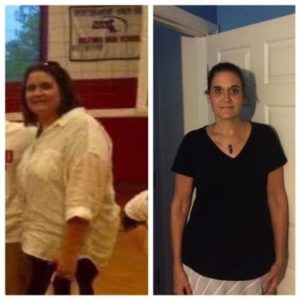One way to empower the health of our families is to become aware of environmental exposures. BPA’s are a daily exposure for many Americans and we have the ability to decrease it through awareness, purchasing and changing habits.
“Bisphenol A, commonly abbreviated as BPA, is an organic compound with two phenol functional groups. It is used to make polycarbonate plastic and epoxy resins, along with other applications” (Wikipedia).
BPAs have been in the news lately because of the hormone-like properties, raising concerns about its presence in food and plastic products. Since 2008, several governments questioned its safety, prompting some retailers to withdraw polycarbonate products. A 2010 report from the United States Food and Drug Administration (FDA) raised concerns regarding exposure to fetuses, infants, and young children. Since then Canada and Japan have discontinued the use of BPA declaring it a “toxic substance” and Europe, Canada, and the United States have banned BPA use in baby bottles.
It isn’t just affecting humans.
This article describes BPA’s destruction to the environment.
It is found in items such as:
- plastic bottles
- plastic cups
- lining of most canned foods
- lining of aluminum soda cans
- food storage containers
- compact discs
- water supply pipes
- plastic dinnerware and plates
- plastic drink containers (OJ, Milk, Gatorade, etc)
- store receipts (here’s why)
Ways to decrease:
- choose glass instead of plastic as much as possible
- drinking cups
- storage containers
- bottles
- if you have to use plastic; plastics marked with a #1, 2, 4, and 5 don’t contain BPA and are generally safer for food
- do not place BPA plastic containers in the dishwasher or microwave as this increases leaking
- do not freeze food or drinks in BPA plastic
- switch to dairy farm milk in glass
- decrease (or stop) soda
- switch to stainless steel water bottles with BPA free linings
- veggies
- buy fresh or frozen
- buy glass veggies if possible (lid may have BPA but less than canned)
- soak and cook dried beans (more work but so much cheaper)
- buy Eden brand BPA free canned veggies
- rinse canned veggies well
- buy boxed tomatoes and soups which can’t be rinsed
- don’t take receipts if you don’t need them
Despite the overwhelming feeling many voice of “there is just too much to worry about and something is eventually going to lead to cancer”, we believe Living 4 Better Health is about making small steady lifelong changes to shift these theories. Go forward… Do something today that your future self will thank you for!

 “Finding 4 Better Health was a blessing after many years of traditional medicinal doctors /Endocrinologists being unable to get me to feeling optimal. Dr Zub listened to me, truly heard me & devised a proactive plan for me to have a better life. My body is still healing, but I am no longer barely functioning to get through my daily life. I can exercise again without being completely depleted of energy. I have been able to successfully lose 20 pounds. I feel I can always contact Dr. Zub with any questions or concerns I may have. We continue to work together to find the right course of action for my health. I can’t say enough great things about their practice.”
“Finding 4 Better Health was a blessing after many years of traditional medicinal doctors /Endocrinologists being unable to get me to feeling optimal. Dr Zub listened to me, truly heard me & devised a proactive plan for me to have a better life. My body is still healing, but I am no longer barely functioning to get through my daily life. I can exercise again without being completely depleted of energy. I have been able to successfully lose 20 pounds. I feel I can always contact Dr. Zub with any questions or concerns I may have. We continue to work together to find the right course of action for my health. I can’t say enough great things about their practice.”

